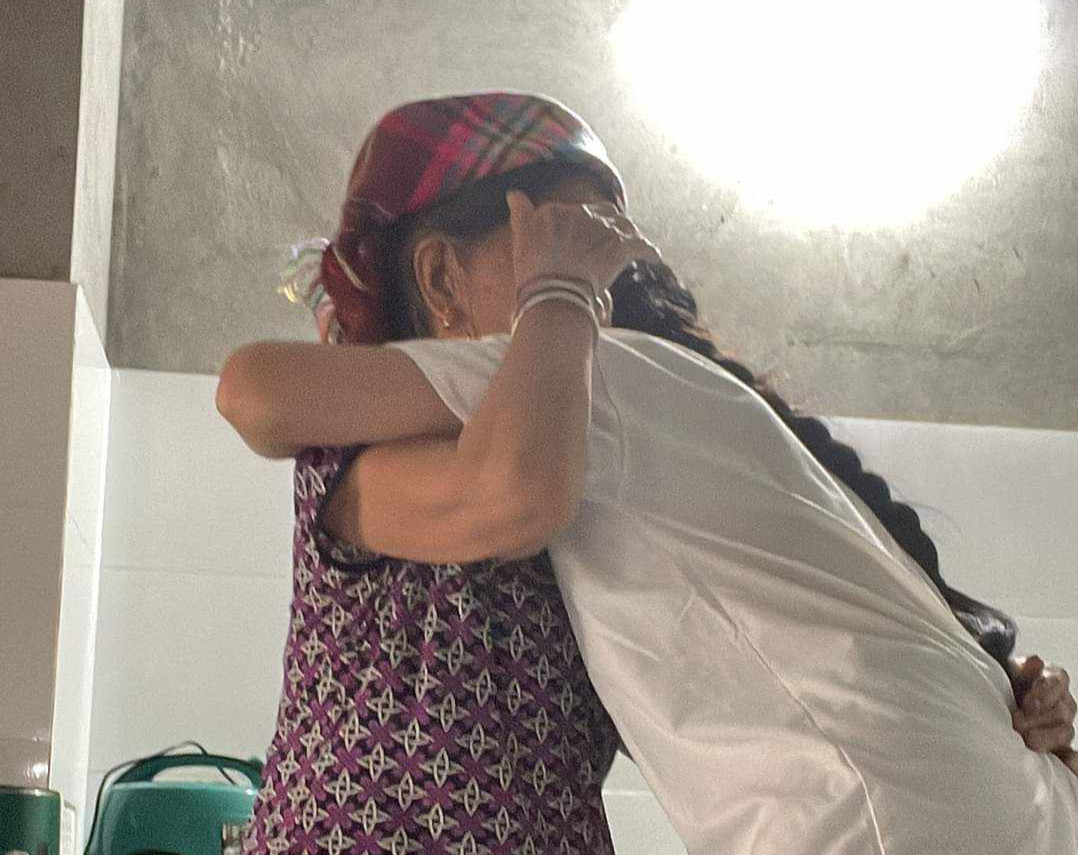
The victims are very happy on the first days after rescue, as they have reunited with family members and escaped the control of scammers. But when those days are over, they begin facing difficulties reintegrating into society, seeking jobs, and earning a living.
The trauma during the time of being detained and forced to work is another factor leading to their depression and negative thoughts about their lives, according to Dinh Thi Minh Chau, a psychology expert at Rong Xanh (Blue Dragon), a non-government organization supporting human trafficking victims.
Trauma
Chau met a girl many years ago who was rescued and brought back to Vietnam in normal physical and psychological condition. Though she sometimes felt insecure, the situation was controllable.
After staying at an accommodation provided by Rong Xanh for some days, the girl said she wanted to return home though she didn’t know what she would do in the future. Social workers kept in contact with her and regularly called her to ask if she needed assistance.
“One day, she contacted Rong Xanh and said she was not okay. She said: 'Maybe death is the relief for me at this moment'. However, she really didn’t want to do this. She reminded herself that she made a lot of effort to return to her homeland. When she was in the ‘den’ of the traffickers, she once cut her hands and she didn’t want to repeat the action. So she called for help from Rong Xanh," Chau recalled.
In her hometown, the girl tried to go to a vocational school, but she could not find a suitable school. Meanwhile, she faced criticism and discrimination from neighborers. These attitudes, plus the psychological trauma after the incident, made her think that she was worthless and it would be better to die than lead a miserable life.
“The girl then went to a vocational school and received psychological therapy. After several months, she became better. She could communicate with people, work, and earn money,” Chau said. “The girl felt that she deserved to live. This was the factor that helped her overcome her difficult period."
The story had a happy ending. She later made more friends and found a boyfriend. She married and now leads a satisfying life.
Mental health
According to Chau, the common characteristic of human trafficking victims is certain pre-existing problems. The problems could be poverty, lack of affection from family members, or difficulties in expressing their ideas. These are factors that make them vulnerable and easily approached by traffickers.
Their situations become even more serious after they experience tough days when they are beaten, tortured and raped.
Chau told VietNamNet that she and her co-workers sometimes felt helpless as the victims had many problems, including mental illness, and language and geography barriers.
In some cases, victims did not want to escape the toxic environment, which put pressure on them and caused stress.
“One of the psychological problems is reliance. They feel safe when staying with someone and they tend to rely on a person, though they know the person is not good,” Chau said. “To some extent, they suffer from being psychologically manipulated."
To deal with the cases, psychologists try to disrupt the relation between the victims and the person, and tell the victims that they have other good choices.
“This girl, for example, felt happier when she could go to school. She felt she was useful in life, the feeling which helped her become more confident and believe that she would have a better future,” Chau said.
In many cases, trafficking victims, after returning home, refuse all support, physical and psychological, from relief organizations. They want to forget all things connected with the tough days they once experienced.
Their willingness needs to be respected, but Chau and her co-workers believe that all people who have experienced psychological trauma need support.
“Many people don’t know that they need support, because Vietnamese people don’t have the habit and culture of mental health treatment,” Chau said, adding that many people tend to hide their problems.
However, she said that mental health needs to be cared for, just like physical health.
Nguyen Thao